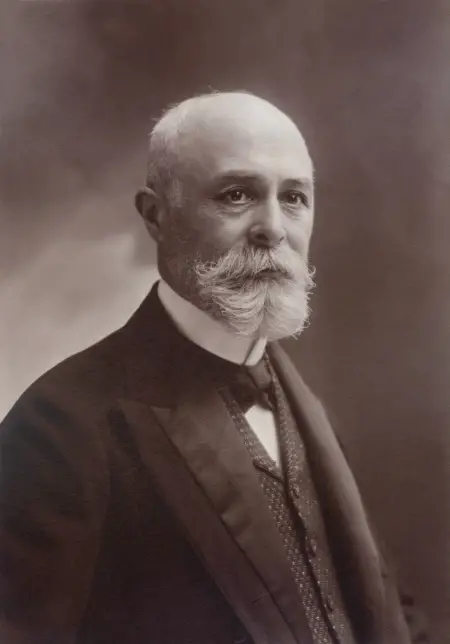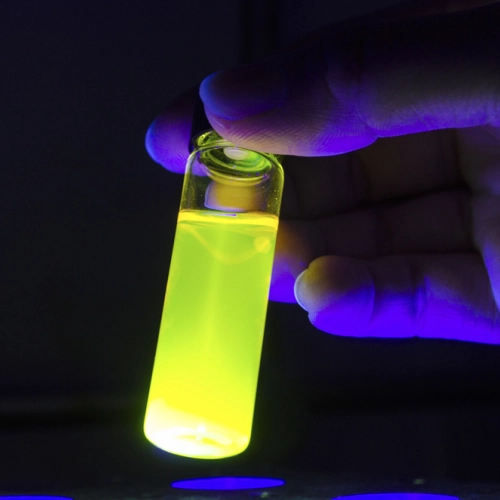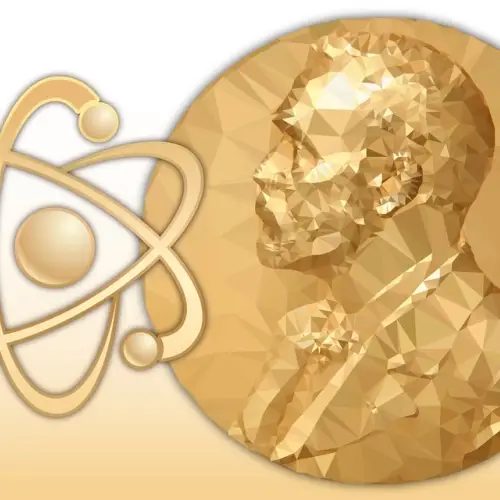
Antoine-Henri Becquerel, born on December 15, 1852 in Paris, France, was a renowned French physicist who played a crucial role in the discovery of radioactivity, a finding that would transform 20th-century science. His work in this field led to him sharing the Nobel Prize in Physics in 1903 with Pierre and Marie Curie.
Throughout his career, Becquerel demonstrated remarkable ingenuity and perseverance, qualities that placed him at the center of one of the most important scientific revolutions of his time.
Family context and education
Becquerel came from a family deeply rooted in science. His grandfather, Antoine César Becquerel, and his father, Alexandre-Edmond Becquerel, were also prominent physicists, providing Henri with an environment in which science and research were an integral part of everyday life. From an early age, Becquerel was exposed to scientific ideas and developed an interest in physics, chemistry, and engineering.
After completing his secondary education at the Lycée Louis-le-Grand in Paris, Becquerel entered the prestigious École Polytechnique in 1872, where he received rigorous training in mathematics and science.
He subsequently continued his studies at the École des Ponts et Chaussées, where he trained as a civil engineer. Throughout his life, Becquerel maintained a balance between his scientific career and his work as an engineer, serving in various roles within the French Ministry of Public Works.
Becquerel's early scientific work
 Before his discovery of radioactivity, Antoine-Henri Becquerel focused much of his research on optics, phosphorescence, and the absorption of light by certain materials.
Before his discovery of radioactivity, Antoine-Henri Becquerel focused much of his research on optics, phosphorescence, and the absorption of light by certain materials.
Following in the footsteps of his father and grandfather, Henri studied phenomena related to light and electricity, exploring how certain materials emitted light after being exposed to energy sources. His father, Alexandre-Edmond Becquerel, had worked extensively on phosphorescence, and Henri continued this line of research, which would lead him, unexpectedly, to his most famous discovery.
In his early work, Becquerel studied how crystals and certain chemical compounds responded to sunlight and other energy stimuli.
He also investigated the phenomenon of fluorescence, in which certain materials emit light when excited by an external source. This line of work, which initially seemed to be an extension of his family's research, would eventually lay the groundwork for his discovery of radioactivity.
The discovery of radioactivity
 The discovery of radioactivity was the discovery that would define Becquerel's career and occurred in 1896, almost by chance.
The discovery of radioactivity was the discovery that would define Becquerel's career and occurred in 1896, almost by chance.
At the time, Wilhelm Conrad Röntgen had just discovered X-rays in 1895, a discovery that had generated great excitement in the scientific community. Inspired by Röntgen's work, Becquerel began to investigate whether there were connections between X-rays and certain phosphorescent materials.
Becquerel decided to use uranium salts, a compound known to have phosphorescent properties. His initial idea was to expose these salts to the sun, hoping that they would absorb the energy and emit some kind of radiation, similar to X-rays. To test his hypothesis, he placed the uranium salts on photographic plates wrapped in black paper, which would allow any radiation emitted by the salts to be recorded on the plates, but would block visible light.
Due to a period of bad weather in Paris, Becquerel stored the photographic plates and uranium salts in a drawer, away from any source of sunlight. To his surprise, when he developed the plates a few days later, he found clear images on the plates, even though they had not been exposed to sunlight.
This indicated that uranium salts emitted some kind of penetrating radiation without being exposed to light, a completely unexpected observation.
From this discovery, our protagonist concluded that uranium emitted an unknown form of radiation spontaneously, without the need for external excitation.
This was the first hint of what would later be called "radioactivity," a phenomenon that would soon be further explored by scientists such as Pierre and Marie Curie.
Impact and development of the concept of radioactivity
Becquerel's discovery marked the beginning of a new era in physics. Radioactivity, a completely unexpected and unexplained phenomenon at the time, challenged established theories about matter and energy.
While Becquerel continued his studies on radioactivity, his work was quickly complemented and expanded by Pierre and Marie Curie, who discovered other radioactive elements such as polonium and radium.
Becquerel and the Curies worked in parallel to investigate the properties of these new elements and to better understand the nature of radioactivity. While Marie Curie coined the term "radioactivity" to describe this phenomenon, Becquerel continued to investigate the properties of radiation emitted by uranium and other materials.
In 1900, Becquerel made another important contribution to the field by discovering that radioactive radiation could deflect a magnetic field, suggesting that it consisted of charged particles.
Radioactive radiation was later discovered to be composed of three different types of particles: alpha particles, beta particles, and gamma rays, a distinction that would be crucial to understanding the nature and effects of radioactivity.
Nobel Prize in Physics 1903
 The impact of Becquerel's work was recognised worldwide when, in 1903, he was awarded the Nobel Prize in Physics together with Pierre and Marie Curie. The prize was a recognition of both his initial discovery of radioactivity and the Curies' later work in identifying new radioactive elements.
The impact of Becquerel's work was recognised worldwide when, in 1903, he was awarded the Nobel Prize in Physics together with Pierre and Marie Curie. The prize was a recognition of both his initial discovery of radioactivity and the Curies' later work in identifying new radioactive elements.
Becquerel's discovery and the Curies' breakthroughs transformed physics and chemistry, opening the door to new areas of research into the structure of matter and the fundamental forces of the universe.
Radioactivity, which initially seemed to be a scientific curiosity, soon found practical applications in fields as diverse as medicine, nuclear energy, and fossil dating.
Contributions and legacy
 In addition to his work on radioactivity, Becquerel also made significant contributions to other fields of physics.
In addition to his work on radioactivity, Becquerel also made significant contributions to other fields of physics.
He conducted studies on phosphorescence, light absorption, and electrical conduction in gases, among other topics. His meticulous approach and ability to identify unexpected phenomena allowed him to make discoveries that others might have overlooked.
Despite the importance of his work, Becquerel remained relatively removed from the public limelight that Pierre and Marie Curie experienced in the years following their discovery. Nevertheless, his scientific legacy is undeniable. The unit of measurement for radioactivity, the "becquerel" (Bq), is named in his honour, a lasting recognition of his impact on science.
Becquerel's work not only changed our understanding of the physical world, but also laid the groundwork for many of the technological and scientific developments of the 20th century, including advances in nuclear medicine and particle physics.
Radioactivity, a phenomenon he discovered unexpectedly, would become one of the most powerful and transformative forces in modern science.
Personal life and death
Throughout his life, Becquerel was a man deeply dedicated to his work, but he also maintained a balanced family life.
In 1874, he married Lucie Jamin, daughter of the physicist Jules Jamin, but Lucie died prematurely in 1878, leaving him a widower with a son, Jean Becquerel, who would also become a prominent physicist.
Becquerel continued to work in academia and research until his later years. In 1895 he was made a member of the French Academy of Sciences, a distinction reserved for the country's most prestigious scientists. He also served as a professor at the National Museum of Natural History in Paris, continuing a family scientific tradition that spanned several generations.
Antoine-Henri Becquerel died on 25 August 1908 at the age of 55 in Le Croisic, a small commune on the Atlantic coast of France. Although his life was relatively short, his discoveries left an indelible mark on science.
Radioactivity, a concept that Becquerel discovered almost by accident, would revolutionize physics and chemistry, forever changing our understanding of the universe.